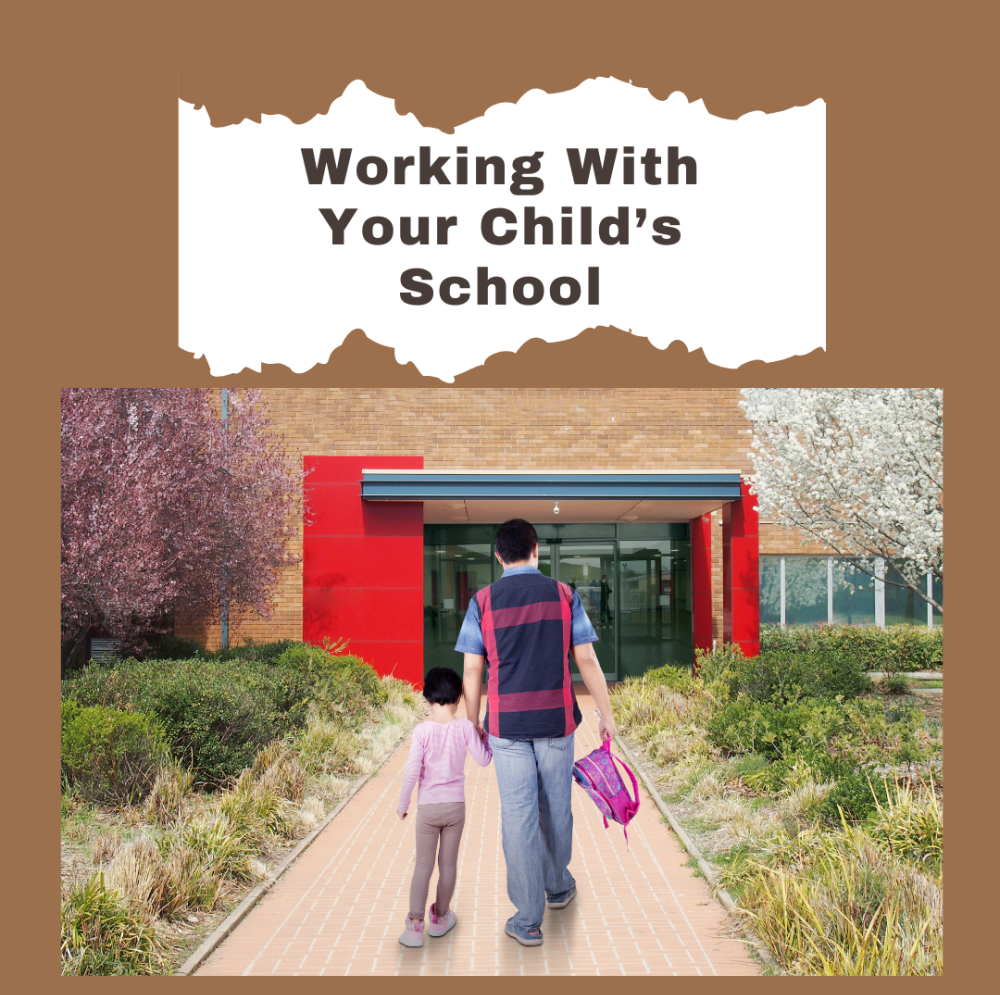
I just want to begin by emphasizing that parents play a crucial role when it comes to their child’s education. A child’s learning journey is a team effort, with teachers, administrators, and, most importantly, parents. Forming a strong collaborative relationship paves the way for your child’s engagement in school and academic success.
The school environment can feel intimidating to many parents. I’ve worked in public elementary schools for 23 years. I can tell you that we highly value and appreciate parents. It’s incredibly helpful when we have the chance to get to know parents on a first-name basis. As a counselor, I enjoy being able to call parents anytime their child has done something kind or helpful, or when they just seem “off” and are struggling. Every family has their ups and downs and sometimes students come to school very upset. When I can call and talk to a parent, I can help their child immediately and get their day off to a great start. Sometimes I find that something seemingly minor has occurred, but it really affected the child in unexpected ways. Maybe a relative is visiting and sleeping arrangements were changed, or a parent went on a short business trip but the child misunderstood and thought they’d be gone for a long time. Or sometimes a sibling did or said something mean on the way to school on the bus and the child was devastated. These are just examples of situations we see every day with young children.
Families get very busy and I assure you that teachers and other school staff understand this. If your child did not get their homework done. had a rough night, or struggled with a project, let the teacher or school office know. We are always very happy to hear from parents. Your involvement, in any form, is highly valued and appreciated.
Establishing a Constructive Relationship with Teachers
The teacher is your key ally in the educational system. Forming a positive, constructive relationship with them can set the tone for the entire school year. If you can possibly make it, attend your child’s open house or meet and greet at the beginning of the year. Students are always so excited to see their classroom and share that with their families.
Keeping the lines open between you and your child’s teacher is critical. You might consider a brief email to introduce yourself at the start of the school year and inquire about the best way to keep in touch. If you have the time, visit your child during lunch, or volunteer at the school. It’s a wonderful bonus when parents read to children, help with projects, make copies, hang up artwork, or help out during lunch and recess. Schools have many needs and moving parts. When parents are able to help and partner with us, it’s greatly appreciated.
Other great ways to get involved are helping out at a book fair, chaperoning a field trip, or assisting the teacher during special events in the classroom.
Parent-teacher conferences can be a gold mine for understanding your child’s educational progress. Ask questions about curriculum, your child’s social interactions, and ways you can foster learning at home. This is also a great time to clear up any confusion or misunderstandings. Teachers carefully prepare for conferences and they enjoy meeting and having one-on-one time with the families of their students.
Volunteering at school events or in the classroom isn’t just about giving up your time; it’s about showing your child that their school life matters to you.
Navigating Challenges and Advocating for Your Child’s Needs
Every child’s journey through elementary school is bound to hit a few bumps along the way. From academic struggles to social issues, it’s crucial for parents to know how to address these challenges effectively. Children can behave very differently at school than at home.
Sometimes parents feel confused and upset when they hear that their child is having behavior problems. Some children need help figuring out how to navigate the school environment. There are so many subtle skills and behaviors they need to learn. There are rules to follow, routines to learn, influences from their peers and they go to lunch and recess with a large number of other students. This can be unsettling and overstimulating for some children.
I have seen parents and teachers who have very different viewpoints and their personalities don’t match. I enjoy supporting parents through these challenging situations. But I honestly have not known a teacher who didn’t care about their students. They work really hard and want their students to learn and be happy.
Ask lots of questions and be willing to listen to the school’s perspective about what’s going on with your child.
If your child is experiencing difficulty with schoolwork or with peers, open a dialogue with teachers or the school counselor. Early intervention is key to preventing larger issues. Be prepared to describe what you’ve observed, but also be ready to listen to the school’s perspective. Together you can start crafting a plan that’ll support your child’s unique needs.
For those instances when your child might require special accommodations for learning, knowing your child’s rights and the school’s responsibilities is paramount. Don’t hesitate to inquire about Individualized Education Plans (IEPs) or 504 Plans if you suspect your child has learning barriers that require formal attention. These tools are designed to level the educational playing field for all students.
Of course, disagreements with school policies or decisions can arise, and that’s when you’ll need to have clear strategies for conflict resolution. Keep communication lines open and stay respectful, even when you’re advocating firmly for your child’s interests. Remember, your goal is a resolution that benefits your child’s educational experience, and maintaining a collaborative attitude usually helps achieve that best.
If you are unable to come to any agreement about what will help your child, start by talking to the principal. If you cannot come to an amicable agreement, you can contact the superintendent’s office. Just keep in mind that they’re responding to issues from every school in the district, so their time might be limited.
Remember, ensuring your child’s academic and social success sometimes means having tough conversations or navigating school bureaucracy. But with patience, persistence, and open lines of communication, you can be an effective advocate for your child.
I will be honest with you. Some schools do not have a positive culture. You might have the unfortunate circumstance of having a teacher or administrator, or both, that you cannot work with. In this case, moving your child to another school can give you all a fresh start.
Conclusion: Empowering Your Child for Educational Triumph
Active participation in your child’s education fosters a partnership that supports learning and development. This includes helping your child navigate their responsibilities, cultivating a positive relationship with educators, and advocating for their needs when necessary.
If you want to see your child thrive academically and socially, remember that your engagement is crucial. But this isn’t just about better grades or test scores; it’s also about helping your child develop a love for learning, resilience in facing challenges, and the confidence to pursue their interests and goals.
In my opinion, the true triumph is not in any singular achievement, but in the continued effort to support and encourage your child throughout their educational journey. Choose something that resonates with you: whether it’s communicating effectively with teachers, participating in school committees, or simply being present and interested in your child’s school life.
I really hope that this guide has armed you with the information and encouragement you need to get involved. Your first attempt doesn’t need to be your last. Just don’t focus too much on perfection; it’s the consistent effort and willingness to be a part of your child’s academic life that counts.
Thanks for investing your time in learning how to navigate this important aspect of parenting. Your child’s bright future in elementary school and beyond is a beautiful testament to the role you play. I’d love to hear how you’re applying these strategies, so feel free to share your experiences and triumphs!
